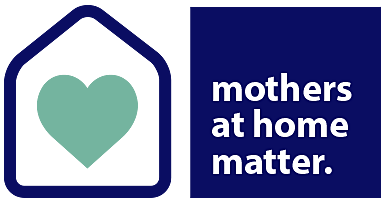Conference 2017
The MAHM Open Meetings are held in the Autumn every year and are a chance for members to hear inspirational talks and meet and chat to other members. Here’s the account of a fantastic talk in November 2017.
Our Open Meeting (conference) takes place once a year and is open to all. It is an opportunity for mothers and policy makers to come together to be encouraged about the value of mothering. We highly recommend Erica’s book, Being There, in which she expands on her comments here.
Erica is a New York psychoanalyst who has recently published a high profile book called ‘Being There: Why prioritising motherhood in the first three years matters’, which has attracted considerable attention because of its uncompromising and, to some, unwelcome message.
Erica started by saying that we need an organisation called Mothers at Home Matter. Isn’t it obvious that they do?
All jobs have boring and burdensome moments but for some motherhood has lost its joy. Over the past 30 years of practice Erica has seen increasing levels of mental illness at younger and younger ages, which she connects with the absence of mothers on a daily basis. Her work focuses on helping mothers to be present. No one has to have children. If you do, you should look after them.
There is a myth that nothing changes after you have children; everything changes. We need to inform mothers before they have children. Nurturing is hard work but it can be fun. It is important to remember that you don’t have to do it all when the children are young, you can enjoy success at your job later. The first 1000 days of life are a crucial time when the limbic system, which helps us cope with stress, is developing. You lend your child yourself, but you get it back when they grow up. You have to be selfless.
There is an increasing devaluation of mothers in the world. Motherhood has lost status. Mothering is not seen as valuable work because it is not paid, but what could be more valuable than raising emotionally healthy children?
Feminists gave us the choice to have children or not but the pendulum has swung too far. Now, if you don’t go out to work, you’re seen as a traitor to feminism. Social economists are driving the research which is being reported. They write about the importance of mothers returning to work. Published articles are almost always about the needs of mothers and fathers, hardly ever about the needs of children. We should build a child-centred society.
Erica conducted lots of research for her book. We need research to prove that mothers are emotionally and biologically necessary, for example:
1. Mothers regulate their baby’s emotions so they achieve homeostasis (emotional and physical equilibrium). Babies can’t do this themselves until they are about three.
2. Mothers buffer their babies from stress. Babies are born more neurologically fragile than we realised. They are born about 18 months too early in developmental terms, because mothers wouldn’t be able to carry them any longer.
3. Nurturing, or the lack of it, is passed on down through the generations.
There is an inverse relationship between oxytocin and stress. Oxytocin is a protector against cortisol. The more the mother is present, the higher the level of oxytocin in the child and the better they respond to stress. The amygdala is the almond shaped part of the brain which plays a central role in the experience of anxiety. It is like a light switch. If it is always on, children go into a hypervigilant state with raised levels of anxiety. If this continues, they can become depressed and don’t react as they should to stress. The presence of the mother regulates the amygdala, enabling it to ‘switch off’ and reduce anxiety levels.
In the USA, 27% of women return to work only two weeks after birth. There is no paid maternity leave. 40% have post-partum depression, which can make them bored with their babies. Returning to work does not help these mothers. They feel conflicted and may feel guilty. Guilt is OK because it shows you are feeling empathy for your baby’s brain and what they are going through. Only when we face up to children’s pain can we empathise with it and repair it. If mothers do have to work, they should recognise the signs of distress in their children and work out ways to be as present as possible when they are there.
Empathy should develop in the first three years in the baby’s brain. Attachment disorders in early childhood are impacting mental health in later life. Sensitive babies, with a short alelle on the serotonin receptor, are more prone to anxiety issues. They may be harder to soothe and seem distressed by sound, light and other stimuli. But good quality emotional nurturing can neutralise that gene.
Claire Paye

